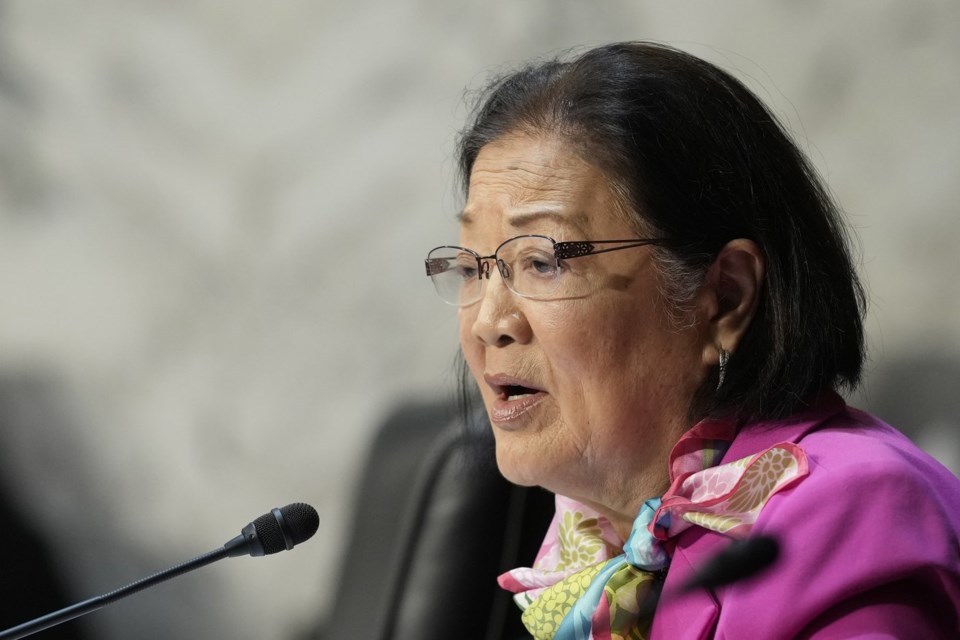HONOLULU (AP) — U.S. Sen. Mazie Hirono and the state's incumbent congressional representatives won their races in the Democratic Party's primary election on Saturday.
Hawaii is a vote-by-mail state. Ballots were mailed to registered voters who must return them through the mail or to drop-off boxes located around the islands. Voters also were given the option to cast ballots in person at a handful of voter service centers in each county.
Ballots had to be received by county elections offices by 7 p.m. on Election Day to be counted.
Here's a look at key Hawaii races:
U.S. Senate
Hirono is seeking a third term after first being elected to the office in 2012 to replace Daniel Akaka, who was the first Native Hawaiian to serve in the U.S. Senate after statehood.
She won a three-way race against Ron Curtis and Clyde McClain Lewman. Curtis lost to Hirono in the general election six years ago when he was the Republican nominee for the same seat. Lewman placed seventh in the Democratic primary for governor in 2022 with 249 votes.
Hirono became a state legislator in 1980, Hawaii’s lieutenant governor in 1994 and a member of the U.S. House in 2007.
She underwent for kidney cancer in 2017, a year before she was last elected to a second six-year term in the Senate.
Former state Rep. Bob McDermott beat five lesser-known candidates for the Republican nomination for Senate. McDermott last ran for Senate two years ago when he lost to U.S. Sen. Brian Schatz, a Democrat, in the general election by a 44-point margin.
U.S. House
U.S. Rep. Ed Case won the Democratic Party primary to represent Hawaii’s 1st Congressional District in Congress by defeating Cecil Hale.
Case was first elected to the seat representing urban Honolulu in 2018, after previously representing Hawaii’s 2nd Congressional District from 2002 to 2007.
Patrick Largey ran unopposed in the Republican primary.
In the 2nd Congressional District race, U.S. Rep. Jill Tokuda was unopposed in the Democratic primary and Steve Bond was unopposed in the Republican primary. The district covers suburban Honolulu and the neighbor islands.
State House
House Speaker Scott Saiki faces a tough race against Kim Coco Iwamoto, who is running once more after losing to Saiki by just 161 votes two years ago and 167 votes in 2020.
Their state house district covers downtown Honolulu and Kakaako, where a construction boom has transformed warehouses into high-rise condos.
Saiki, an attorney, has been House speaker since 2017 and a state representative for three decades. His campaign website touts legislation passed this year that he said would provide a 70% tax cut to working-class families.
Iwamoto is an attorney who represented Oahu on the state Board of Education from 2006 to 2011. Her website says she is fighting to expose government corruption and waste and to provide sufficient shelter and social workers to address homelessness.
Iwamoto was the highest-ranking openly transgender person elected in the country when she first won her education board seat 18 years ago.
Audrey Mcavoy, The Associated Press




